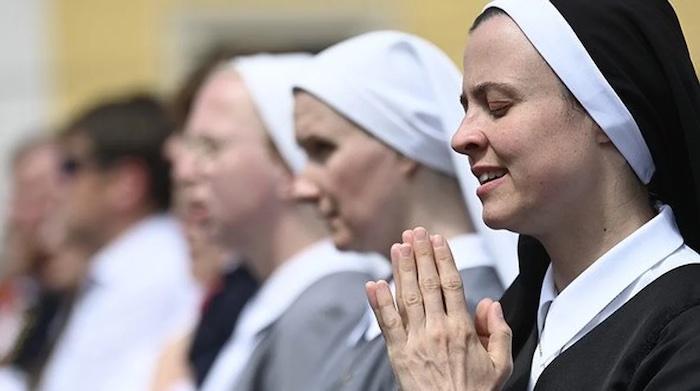— How Far The Pope Will Go Toward A More Inclusive Catholic Church

Two synods by the Catholic Church, to be held in Rome in late 2023 and 2024, are to debate possible and even radical changes to the Church’s practices and rules in line with the Argentine pope’s vision of a social and inclusive Church.
By Sergio Rubin
Pope Francis wants to press ahead this year with some of the bold reforms he envisages for the Catholic Church. Ample debate is already taking place on issues and likely to be aired in two synods to be held in Rome.
These include the rule of priest celibacy, allowing married men of proven faith to become priests in parishes with an acute shortage of vocations, women as deacons (the level below priesthood), full recognition of remarriage for divorced Catholics, a place for homosexuals in the Church and greater care and attention to the poor and socially excluded.
The Church wants to hold a synod (or clerical assembly) in two phases — in October 2023 and October 2024 — so it began organizing in 2021 a broad-based consultation among its clergy and flock worldwide, to promote internal dialogue “in the light of faith.”
In what is itself a “synodal process,” Catholics are being asked their views on a range of issues including thorny ones, and while this vast exercise will yield no resolutions, it will act as a reflector of the Christian mood on matters and act as a useful pointer ahead of the first synod.
Walking together
The Pope wants the Church to be more open to dialogue. In theological terms: it should be able to discern reality under the inspiration of the Holy Spirit. Etymologically, a synod is a confluence or “walking together,” which means that the first synod set for October will include among its 400 participants bishops and priests, but also laymen and laywomen. The latter are to constitute a quarter of all participants and for the first time, 56 laywomen will be voting at a synod. This is radical, prompting some observers to term the synod a “mini council.”
The coming synod will effectively consider the Church’s own broader “synodality” or the same spirit of “fraternal collaboration and discernment” associated with such gatherings. The initiative is important, not just for the level of participation it has already fomented across the Church, but for consolidating “the identity of God’s people opening itself to listen to the voice of the Holy Spirit speaking in our communities, in the cries of the poor and the earth’s lament,” says Jorge Lozano, the archbishop of San Juan de Cuyo in Argentina. Monsignor Lozano has been an active contributor to preliminary consultations at the regional level.
He says “some progress” has already been made on issues like allowing married men to become priests or women as deacons.

Addressing thorny issues
María Lía Zervino, president of the WUCWO (the World Union of Catholic Women’s Organizations) and one of the first three female members of the Dicastery for Bishops (the Vatican body that picks bishops) believes the synod is “of the utmost importance” because “only when we walk together, which we rarely do, can we preach the Good News credibly.” The synod, she says, was an opportunity to “find a new way of facing the Gospel and to apply the Vatican II Council in greater depth.” She is referring to the Church’s 20th century reforms.
Such issues should not monopolize the entire synod.
Zervino says controversial issues that had emerged in preliminary consultations were included in a working document “for consideration and treatment using the methodology of conversing in The Spirit.” But such issues should not, she says, monopolize the entire synod, nor should women’s active role in the Church be reduced to their ordination as deaconesses. Letting 56 women vote, she adds, “is an act of justice, not a feminist demand.”
Matias Taricco, an Argentine priest and theologian, sees the coming synod as a “new path for the entire Church” and undoubtedly a chance to confirm the direction Pope Francis wants it to take. He hopes the synod will address “all the thorny questions.”
Avoid bitterness
Theologian Marcela Mazzini also calls the synod a landmark as “it is dealing with nothing less than the Church adopting a new way of being.”
A more incisive presence and participation by women in the Church.
She is confident there will be advances on the contested issues, though cannot say which exactly, and how much. She doubted it would immediately pave the way for deaconesses in the Catholic Church, but “certainly it will address a more incisive presence and participation by women in the Church, not just in conversions but also in places where decisions are taken.”
To avoid any bitterness, Pope Francis has said the synod is no “congress or parliament, but the Church walking together to read reality with the eyes of faith and with God’s heart.”
Complete Article ↪HERE↩!
